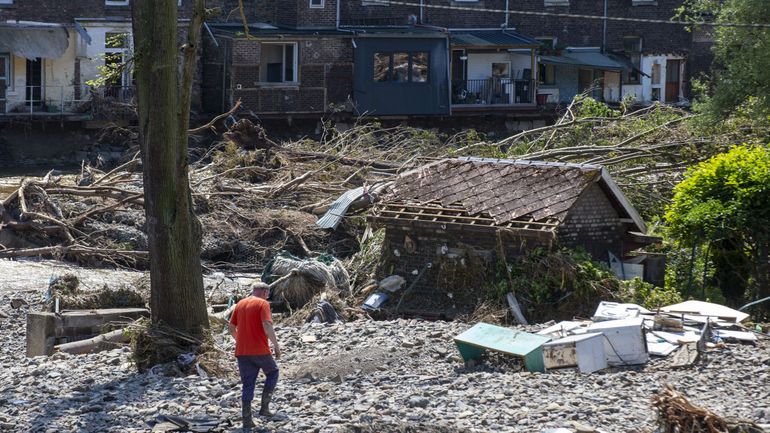Unemployed and undocumented people should be recruited to help rebuild and repair the damage caused by the deadly floods in July, according to Walloon Budget and Finance Minister Jean-Luc Crucke.
Crucke stressed that the costs of the flood damage will pass €2 billion and that Wallonia must take financial responsibility and concentrate on the reconstruction of the disaster areas, arguing that the unemployed could play a role in this recovery.
"I am thinking of the 200,000 people here who have no work," Crucke told VRT News and Le Soir.
He added that undocumented migrants could also be involved and that the federal government should solve this crisis with goodwill and not just focus on ideology.
"You should not stick to your ideology just because those people are not of Belgian origin. If they want to work and are competent, I would not understand why we would not employ them," he said.
"These are people who are already in Belgium and have sometimes been working in the black for years," Crucke added.
Related News
- Flanders offers housing to flood victims in Wallonia
- Ecolo in favour of inter-parliamentary commission of inquiry into deadly floods
- Poor weather conditions take a toll on Belgian food crop production
He also stressed that the climate emergency should be central to everything the government does now. "This is the issue of the issues. It has happened faster than the worst pessimists predicted," he said.
Focus on recovery
Earlier this month, Crucke announced that €200 million would be released immediately, via the provision of the Walloon Recovery Plan, to feed the Public Disaster Fund, of which he argued it was essential to replenish the cash flow.
Almost one month following the deadly floods that killed 37 people, the federal government announced on Friday that the management of the crisis entered a new phase to focus on recovery, led by the 'Special Commission for Reconstruction' created by the Walloon Region.
The federal support unit will coordinate and organise the actions of the different services active in the field, including the fire brigade, police, civil protection, public health and the Red Cross, and will respond to the most urgent challenges with regards to providing catering, health care and complex clean-up operations.
The needs will be analysed and determined based on reconnaissance operations in the field and on the cooperation with the local authorities, including mayors and federal governors' offices.
As part of the first steps in this process, meal preparations have been started in field kitchens in the worst affected regions (including Chaudfontaine and Pepinster), whilst cabins and shower containers have been made available to the most affected municipalities.
"However, the end of the federal phase and the rescue operations does not mean that the emergency services are no longer involved in helping those affected," the Belgian crisis centre stressed in a press release.
Although Crucke welcomes the help being offered by the Civil Protection and the army to the victims, he argued that is not enough.
"Prime Minister Alexander De Croo said that he was not going to let us down, that is to say, that he can help us, for example with budgetary resources," Crucke said, adding that the federal level can still do more.

